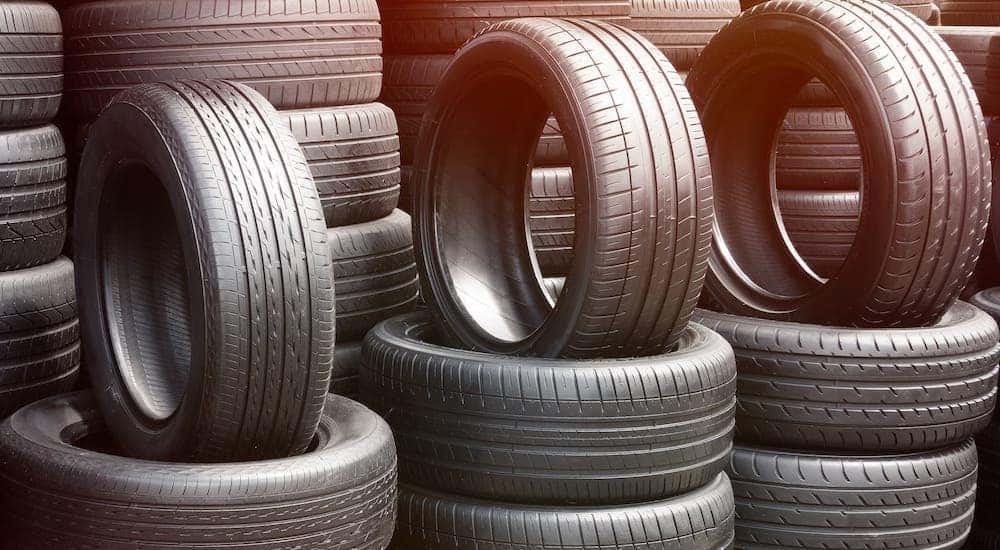Don't Miss Out on Mopar Tire Service Specials: Affordable Maintenance Packages
Don't Miss Out on Mopar Tire Service Specials: Affordable Maintenance Packages
Blog Article
Tire Service: The Influence of Weather
When it comes to ensuring optimal efficiency and safety on the roadway, comprehending the influence of weather problems on tire solution is essential. In this conversation, we will certainly explore the intricate connection between climate problems and tire solution, losing light on the importance of weather-specific tire maintenance techniques and considerations.
Warmth and Tire Performance
When subjected to heats, tires experience adjustments in performance that can substantially impact automobile safety and security and handling. The warmth produced from long term driving or warm climate conditions causes the tire rubber to soften, leading to reduced tread life and enhanced wear. As the rubber becomes softer, the tire's grip on the road reduces, influencing stopping ranges and overall grip. In extreme instances, excessive heat can even trigger tire blowouts, posing a severe security danger to the lorry and its passengers.
Additionally, heats can increase the process of tire aging, triggering the rubber to weaken faster. This can result in fractures, bulges, and other kinds of damages that endanger the architectural integrity of the tire. To mitigate the effects of heat on tire performance, chauffeurs must on a regular basis inspect their tire stress, rotate tires to ensure also use, and inspect for any type of indications of damages. In addition, making use of tires particularly created to hold up against heats can help maintain ideal performance and safety and security when traveling.
Winter Impacts
Cold weather condition problems can have a significant impact on tire performance and safety. As temperatures drop, tire rubber can harden, causing decreased traction on icy or snow-covered roadways. In cold climate, tires may additionally lose air stress more swiftly, which can impact handling and gas efficiency. In addition, cool temperature levels can cause tire sidewalls to tense, enhancing the risk of damages from gaps or various other road threats.
To mitigate the impacts of cool weather on tires, it is critical to frequently examine tire pressure and inflate them to the manufacturer's suggested degrees. Utilizing wintertime or all-season tires designed for cold weather problems can likewise boost traction and grasp on icy or snowy roadways - tires morris il. Appropriate tire maintenance, consisting of routine examinations for wear and damages, ends up being also much more crucial during colder months to make sure optimum performance and safety
Rainy Issues Influence
Tires with damaged footsteps are extra susceptible to hydroplaning, where a layer of water develops up in between the tire and the roadway surface area, leading to discount tires morris il loss of grip. To battle this, chauffeurs ought to regularly evaluate their tires for adequate tread depth and take into consideration spending in tires specifically made for damp conditions.

Snow and Tire Safety
Snow-covered roadways pose special difficulties for drivers, highlighting the significance of proper tire option and upkeep. When driving in snowy conditions, having the right tires can make a substantial distinction in safety and performance. Wintertime tires are developed with special rubber substances and tread patterns to provide far better traction on snow and ice compared to all-season tires. The much deeper treads and sipes of winter tires aid hold the roadway much better, minimizing the danger of moving and sliding.
In enhancement to utilizing winter season tires, it is important to ensure they are effectively pumped up. Cold weather can cause tire pressure to go down, impacting traction and handling (tire shop morris). On a regular basis checking and maintaining the right tire stress is important for optimum efficiency in snowy conditions

Weather-Related Tire Upkeep
Weather-related tire upkeep incorporates an array of methods intended at making certain optimal tire feature and durability in different weather scenarios. One key facet of weather-related tire maintenance is tire pressure guideline. Evaluating tire step consistently and changing tires when walk wear gets to a certain deepness is vital for preserving traction and security in unfavorable weather condition.
Final Thought
In conclusion, climate condition have a considerable effect on tire efficiency and safety and security. From warm influencing tire pressure and use to winter reducing grip, it is important to think about the climate when maintaining and using tires. Stormy problems can reduce grasp and lead to hydroplaning, while snow can increase the danger of crashes if tires are not correctly geared up. Weather-related tire maintenance is essential in making certain ideal efficiency and safety on the roads.
In this conversation, we will check out the intricate connection between weather condition problems and tire service, losing light on the significance of weather-specific tire upkeep practices and factors to consider.

Report this page